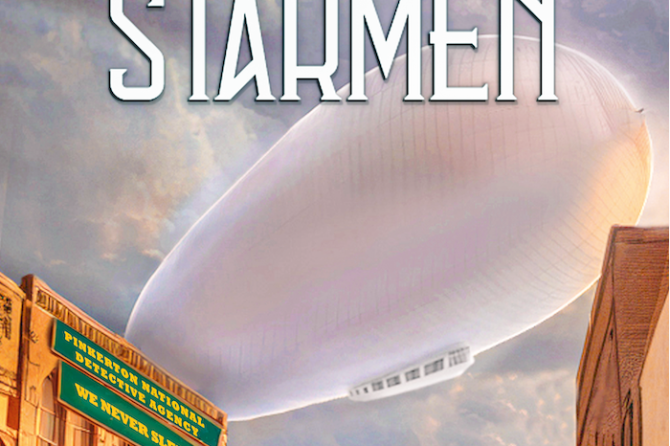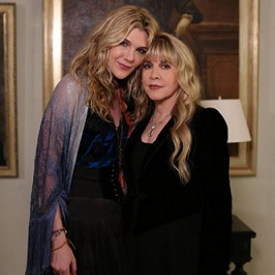
Every family, every tribe, every cultural group has its own myths. We use stories, legends, folk tales, and even parables as means of understanding why things are the way they are, and of teaching why we do things the way we do. Whether fiction-based or fact-based, these mythologies do not define us, but rather they create some outside edges. They begin with creation stories, and they end with tales of the apocalypse – the end times and the end of time.
This is the dead land*
This is where we find apocalyptic and post-apocalyptic fiction – solidly part of the mythologies and stories of the end times and of what comes afterward. Tomorrow: Apocalyptic Short Stories is an anthology published by Kayelle Press in Australia. Within its pages are stories of the end of days and of what emerges from the dust. Fifteen eclectic stories in this collection run the gamut from eldritch Lovecraftian horrors to war-torn annihilation to carnivorous corn and cataclysms of nature.
Whatever your preferred flavour of Armageddon, editor Karen Henderson has selected something to whet your palate. From the classic tales of the risen dead to more ethereal stories of temporal anomalies and techno-catastrophe, very few of earth’s remains are left unturned. Tomorrow features well-seasoned writers like SFWA member Jason Andrew, whose work appears in a number of role-playing games (including Call of Cthulhu and Vampire: the Masquerade); Calvin D. Jim, Prix Aurora Award nominated co-editor of Shanghai Steam, and whose work has appeared in Rigor Amortis and Crossed Genre Quarterly; Clarion South graduate Suzanne J. Willis, who has written pieces for Misanthrope Press and AntipodeanSF; Reece A. A. Barnard, who in his other life is a Combat Systems Operator in the Royal Australian Navy; and eleven other talented wordsmiths.
“Here I Walk” by Joshua S Hill has a Richard Bachmann feel to it – a man walks through northeast Australia, trying to reach the coast following devastating nuclear war. Accompanied by a cat, a dry sense of humour, and armed only with walking sticks and the knowledge he amassed from the local library, his narrative tells of the breakdown of society. More importantly, perhaps, his trek through Townsville to Hughenden to Cape York features a subtle commentary on the strength of character.
A school trip turns grisly when the Fighting Mustangs of Littlefield High and their cheer team return from the championship game to a deserted town. No parents wait to greet the returning students in Robin Kirk’s classic tale of a zombie epidemic, “The Quiet Company”. Underlying the …rather pungent… main story is a well-crafted, subtle and uncomfortable portrayal of social persuasion, bullying, and sexual assault. Kirk does not shy away from being blunt; the story is compelling, fast-paced, and bleak. Just the way it should be.
I cheered – cheered! – out loud (much to the chagrin of the cat) at nature gone wild in Rob Rosen’s “Urban Jungle”. Nature giveth, in Rosen’s story (of course, some gifts come at a price); and nature taketh away, like in “The Dew of Heaven, Like Ashes” by William R.D. Wood. We have some mean mosquitoes in Canada, and some lovely cornfields, but there is a scene in this story where nature takes a far more aggressive kind of revenge.
Aric Sundquist’s “Beyond the Nameless City” is an extremely well-written story that will make fans of Lovecraft smile. Because we’re all a little warped by forbidden knowledge, most likely, but nonetheless, Sundquist captures the creeping horror of otherworldly mystery. Serious (and probably a little mad) fans of the grandmaster will recognize at once what protagonist William Larson is up against, and here the author’s mastery is apparent – we want more.
By far, the gem in this collection is Suzanne J. Willis’ “Jeux D’enfants”. An eerie and ethereal story about the post-infant, pre-adolescent survivors of a temporal mystery (why is it always so much creepier when it’s about kids?), “Jeux D’enfants” has a distinct Victorian feel to it, due in part to the bleak setting of a Paris winter in stasis. Only ghosts roam the streets. Ghosts and children, of course. Willis weaves a labyrinth of heartbreaking – and seriously spooky – problems that only the children can solve. With a nod to steampunk flavour, a traveller in a black and sooty hot air balloon may offer some clue to what the ghosts mean.
There are a few challenges in some of the stories in Tomorrow: Apocalyptic Short Stories with respect to narrative flow. Here and there perhaps a slightly heavier editorial hand may have made good pieces great, but even these small details don’t detract from an overall enjoyable read, from beginning to end. And back again. This collection might not make you want to sleep with the lights on, but it will make you take a second look at your neighbour, or your garden. Here you will find themes of desolation, of isolation, of destruction. You will find glimmers of hope here and there, and you will find engaging, entertaining stories of the end days, all with a twist, and well worth your time.
This is the way the world ends
This is the way the world ends
This is the way the world ends
Not with a bang but a whimper.*
*Excerpts from T.S. Eliot’s “The Hollow Men”











3 Comments